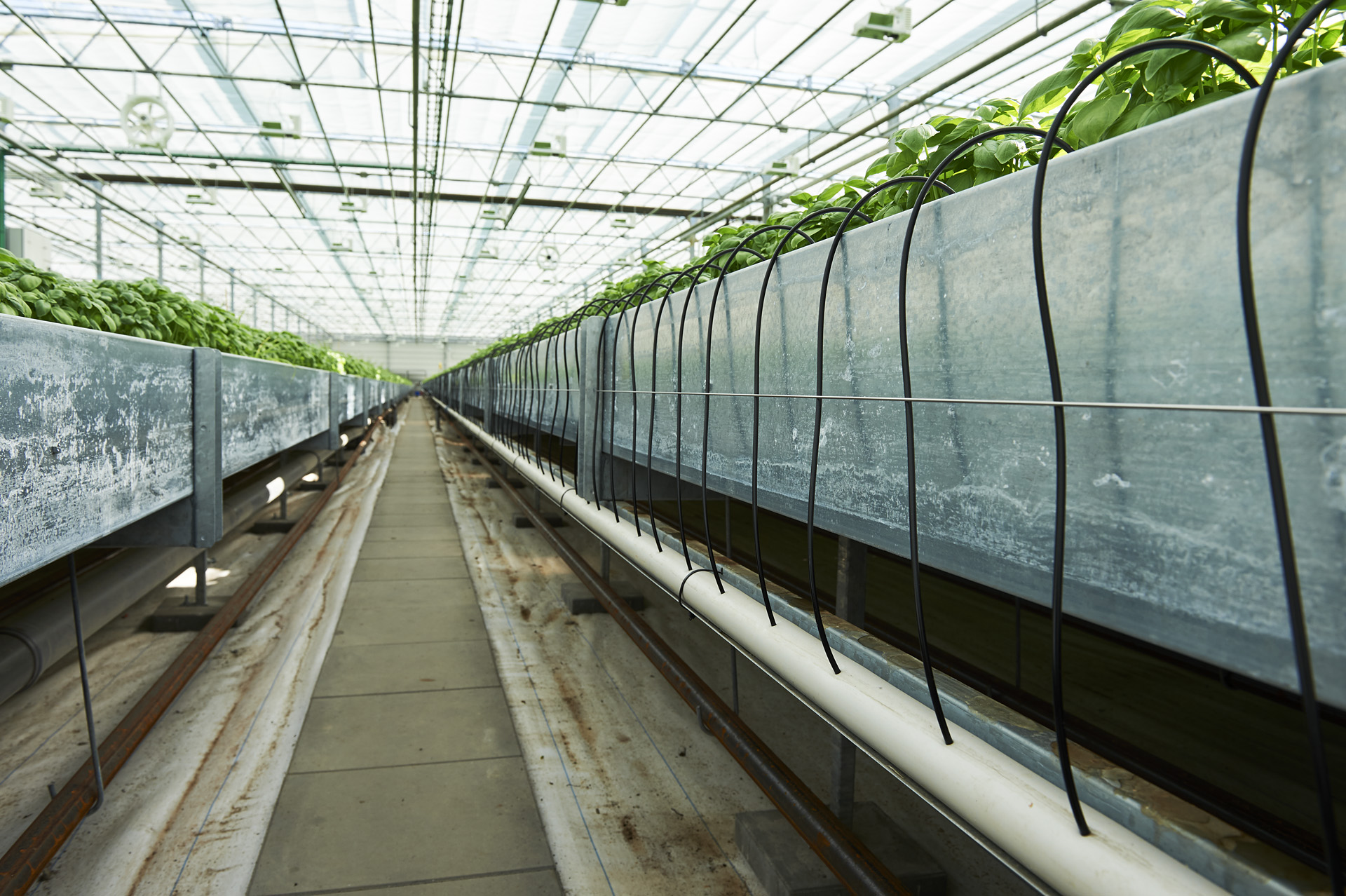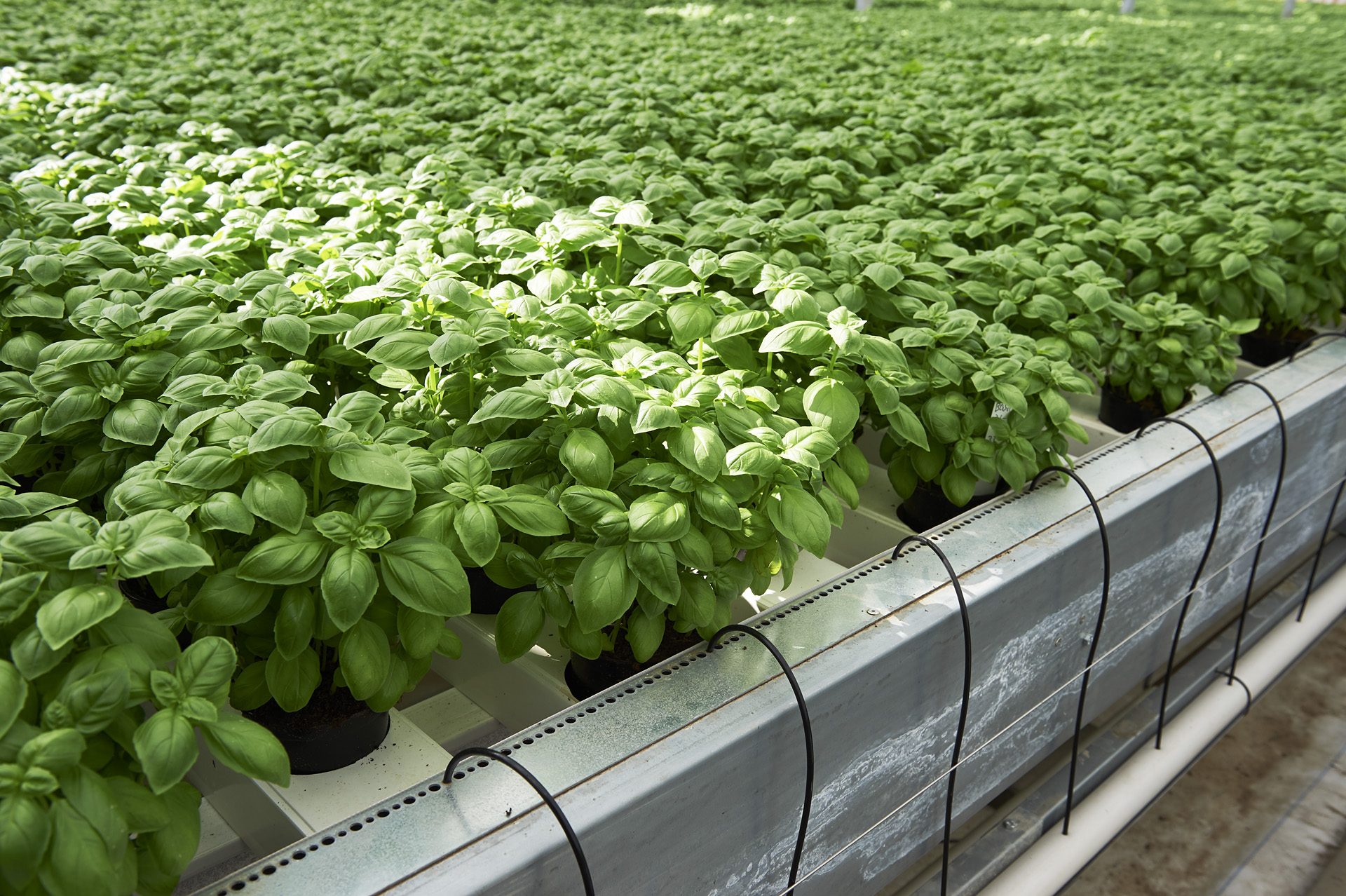Nutrient Film Technique (NFT) in Vertical Farming
Nutrient Film Technique (NFT) is a hydroponic growing method that can be adapted for use in Vertical Farming Systems. This advanced hydroponic system enables growers to attain impressive yields while conserving water and nutrients.
In this article, we will delve into the Nutrient Film Technique, examining its functionality, advantages, and how one can leverage the system’s strengths for year-round cultivation of nourishing and thriving crops.
What is Hydroponics?
Before we address the Nutrient Film Technique it is important to explain hydroponics within a Vertical Farming context. Hydroponics is a method of growing plants without soil, using a nutrient-rich water solution to deliver essential nutrients directly to the plant roots.
In hydroponic systems, plants are typically supported by an inert growing medium or are suspended in nutrient-rich water, allowing them to take up nutrients more efficiently than in traditional soil-based cultivation.
Hydroponic systems offer several advantages over traditional soil-based cultivation, including faster growth rates, more efficient nutrient uptake, and better control over environmental factors such as pH and nutrient levels. Additionally, hydroponics can be practiced in various setups, such as NFT, deep water culture (DWC), aeroponics, and more, each with its own set of advantages and considerations.
What is the Nutrient Film Technique (NFT)?
The Nutrient Film Technique is an active hydroponic system that utilizes pumps to circulate a thin layer of nutrient solution through shallow channels, allowing plant roots to dip and absorb essential nutrients. This highly efficient system significantly reduces water usage. The key components of an NFT system include:
- Grow Trays/Channels: Shallow grow trays or channels are a distinctive feature of NFT systems, requiring less water for proper plant nourishment. These trays can be slightly angled to facilitate the smooth flow of the nutrient solution.
- Water Pump: The water pump plays a crucial role in the NFT system by transferring the nutrient solution from the reservoir to the grow trays. This component is critical, as a malfunction could lead to plants losing access to the solution, potentially causing wilting or plant death.
- Air Stone/Air Pump: The air stone provides aeration and oxygenation to the nutrient solution, promoting healthy root growth and preventing root rot. Its bubbling action helps circulate the nutrient solution, ensuring all roots receive uniform access to nutrients and preventing the formation of stagnant water pockets, which could harbor harmful pathogens.

The Nutrient Solution
The nutrient solution serves as the cornerstone of the Nutrient Film Technique, providing plants with the essential elements they need for growth. Comparable to traditional agriculture fertilizers, the key elements in the nutrient solution—nitrogen, phosphorus, and potassium—are crucial for plant development. After circulating through the system, the nutrient solution returns to the reservoir for reuse.
What are the Advantages of Nutrient Film Technique?
The Nutrient Film Technique offers several advantages in hydroponic cultivation, making it a popular choice for growers. Here are some of the many advantages of NFT systems:
- Water Efficiency: The Nutrient Film Technique stands out as one of the most water-efficient hydroponic methods available. While precise water savings can vary depending on plant types and environmental conditions, estimates generally suggest that NFT systems can save approximately 90% of water compared to traditional farming methods.
- Space Utilization: Vertical Farming, coupled with NFT, maximizes the use of vertical space. This makes the Nutrient Film Technique suitable for environments with limited land, such as urban areas, where space is at a premium.
- Increased Growth Rates: Plants in NFT systems often experience faster growth rates due to the direct and efficient absorption of nutrients. This can lead to quicker crop cycles and increased overall yields.
- Reduced Disease Risk: Since plants in NFT systems are not in contact with soil, the risk of soil-borne diseases is minimized. This is particularly advantageous in maintaining the health and productivity of the crop.
- Oxygenation of Roots: The thin film of nutrient solution in NFT systems also allows for effective oxygenation of the plant roots. This prevents issues such as root suffocation and promotes a well-aerated root zone, contributing to overall plant health.
- Adaptability to Various Crops: The Nutrient Film Technique is versatile and can be adapted for a variety of crops, especially those with shallow root systems. Common crops include lettuce, herbs, strawberries, and other leafy greens, making it suitable for a diverse range of produce.
- Controlled Environment Integration: The Nutrient Film Technique can easily integrated into controlled environments such as greenhouses or indoor facilities. This allows for precise control over factors like temperature, humidity, and lighting, optimizing plant growth conditions.
- Year-Round Cultivation: The controlled conditions and efficient nutrient delivery in NFT systems make it feasible to cultivate crops year-round, regardless of external weather conditions. This is especially advantageous in regions with extreme climates.
- Ease of Automation: The Nutrient Film Technique can be automated, incorporating sensors and control systems to monitor and adjust parameters such as nutrient levels, pH, and flow rates. This automation reduces the need for constant manual intervention.

Implementing the Nutrient Film Technique in Vertical Farming
Implementing the Nutrient Film Technique in Vertical Farming requires careful attention to system design, nutrient solution management, and overall environmental control. Proper monitoring and adjustments are essential to optimize plant growth and yield.
At Viemose DGS, we are experts in setting up NFT systems with attention to detail and your specific situation.





